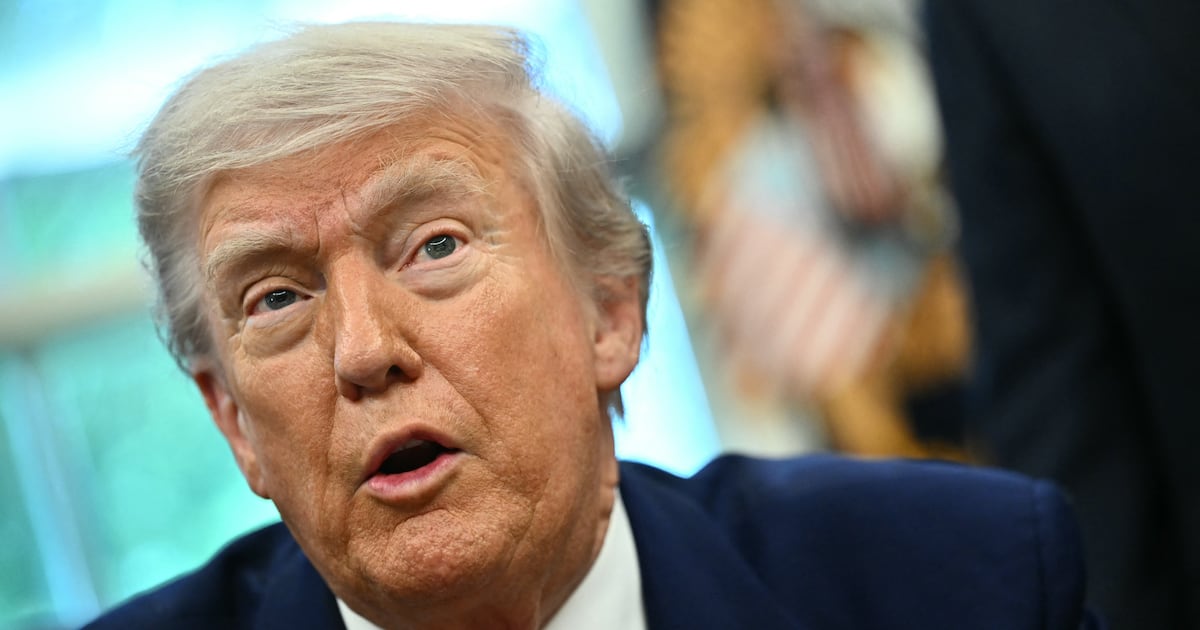As Gaddafi rants on TV again, a key insider reveals to Fadel Lamen the details of his exit offer to Libyan rebels—and the opposition's next move.
Plus, John Barry and Christopher Dickey on U.S. intervention.
The headlines Tuesday morning trumpeted that Libyan dictator Muammar Gaddafi had put forward a deal: Let me and my family leave the country in exchange for a promise not to prosecute. Gaddafi's side promptly termed that report "lies," while rebel spokesman Abdel Hafiz Ghoga echoed the denial: "Our demands are as clear as the revolution. We are not negotiating at all."

The truth, according to a senior rebel leader directly involved in the negotiations with Gaddafi, is somewhere in the middle. In an exclusive interview, this leader, who was in the room throughout this process, broke down what Gaddafi offered—and why the rebels rejected it.
According to the insider, Gaddafi sent a letter, in the care of a former Gaddafi cabinet minster, containing the following offer: Gaddafi would call a meeting of the General People's Congress—supposedly the highest governing body in what is in reality an autocracy. At the meeting, Gaddafi would submit his resignation. A formal process would give then appearance of a democratic turnover.
In exchange, Gaddafi would require that the congress declare immunity for him and his family, both domestically and internationally, using the congress's putative legitimacy over the Libyan people as cover.
The insider tells me the interim Transitional Council, overseen by Mustafa Abdel Jalil, the closest thing the Libyan people have as an alternative to Gaddafi, rejected the idea as a "farce."
Rather, the council viewed Gaddafi's letter as little more than a trial balloon—an attempt to divide the Libyan people as the dictator continued to try to retake cities and towns now controlled by the opposition. In other words, it was just a stalling tactic, one designed to freeze the international community from taking any steps, including a no-fly zone, against him.
The council viewed Gaddafi's letter as little more than a trial balloon—an attempt to divide the Libyan people as the dictator continued to try to retake cities.
"He can pack his bags and take the limo to the airport with his family anytime," the insider explains, reflecting the council's mind-set. "He doesn't even need to fold the tent." And the U.S. State Department seemed to echo that: "Any departure from Libya does not exempt Mr. Gaddafi or his family from any responsibility and accountability for what has occurred," P.J. Crowley, spokesman for the White House, said Tuesday.
Nonetheless, as this dance plays out, opposition leader Jalil continues to provide cover for Gaddafi to cut a deal, even if he contradicts his spokesman's message. "If he leaves Libya immediately, during 72 hours, and stops the bombardment, we as Libyans will step back from pursuing him for crimes," Jalil told Al Jazeera on Tuesday. Note that Jalil does not mention allowing Libya's congress to grant Gaddafi the patina of amnesty, as requested, nor does Jalil offer amnesty from the international community, which is already gearing up for his scalp. In other words, it's business as usual as the two sides bombard each other militarily and diplomatically. The rebels, however, despite the renewed airstrikes against them, clearly see no reason to blink.
Fadel Lamen is a journalist, writer, and Middle East/North Africa expert and cultural adviser based in Washington, D.C. He is a frequent traveler to the Middle East and has been published in Arabic and English newspapers and magazines. He also has been interviewed by major media outlets in English and Arabic on issues related to the Middle East, Islam, and American foreign policy.





